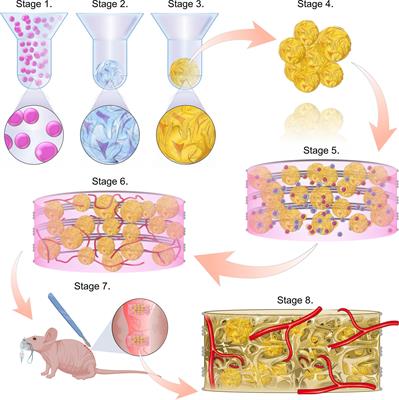EDITORIAL
Published on 06 Sep 2021
Editorial: 3D Bioprinting of Vascularized Tissues for In Vitro and In Vivo Applications
doi 10.3389/fbioe.2021.754124
- 1,662 views
- 4 citations
17k
Total downloads
78k
Total views and downloads
You will be redirected to our submission process.
EDITORIAL
Published on 06 Sep 2021
ORIGINAL RESEARCH
Published on 07 Jun 2021

REVIEW
Published on 31 May 2021

REVIEW
Published on 13 May 2021

ORIGINAL RESEARCH
Published on 26 Feb 2021

ORIGINAL RESEARCH
Published on 18 Jan 2021

